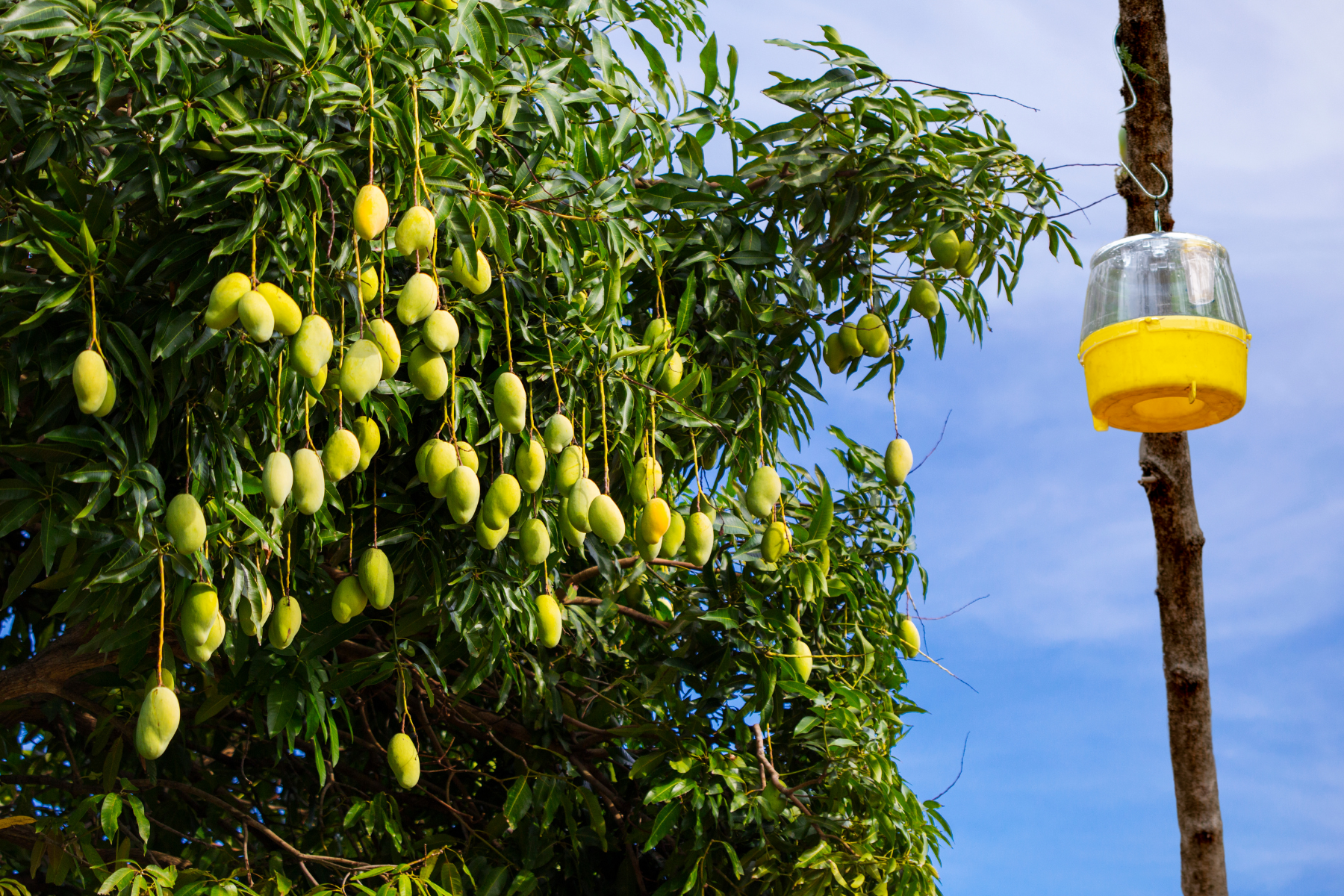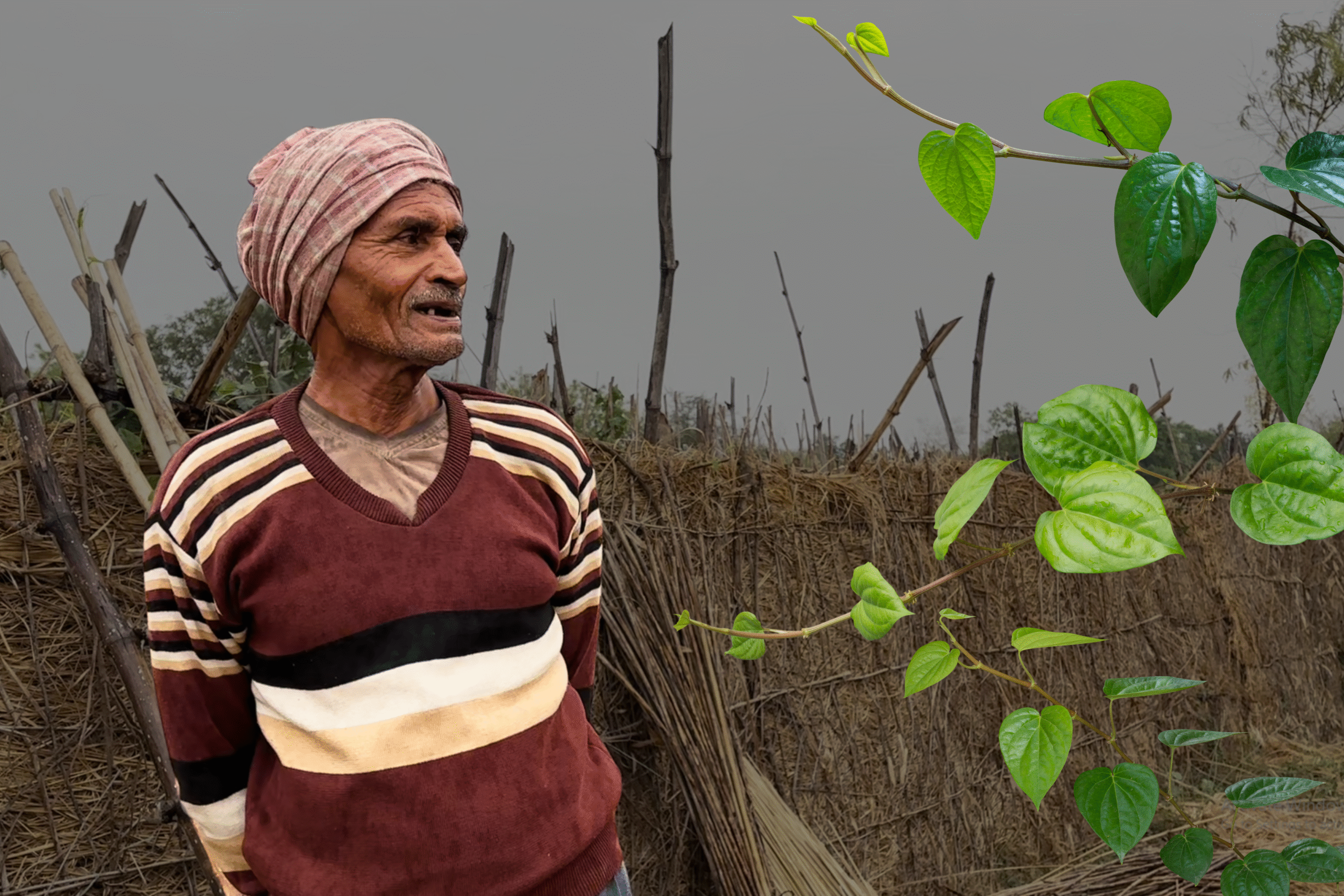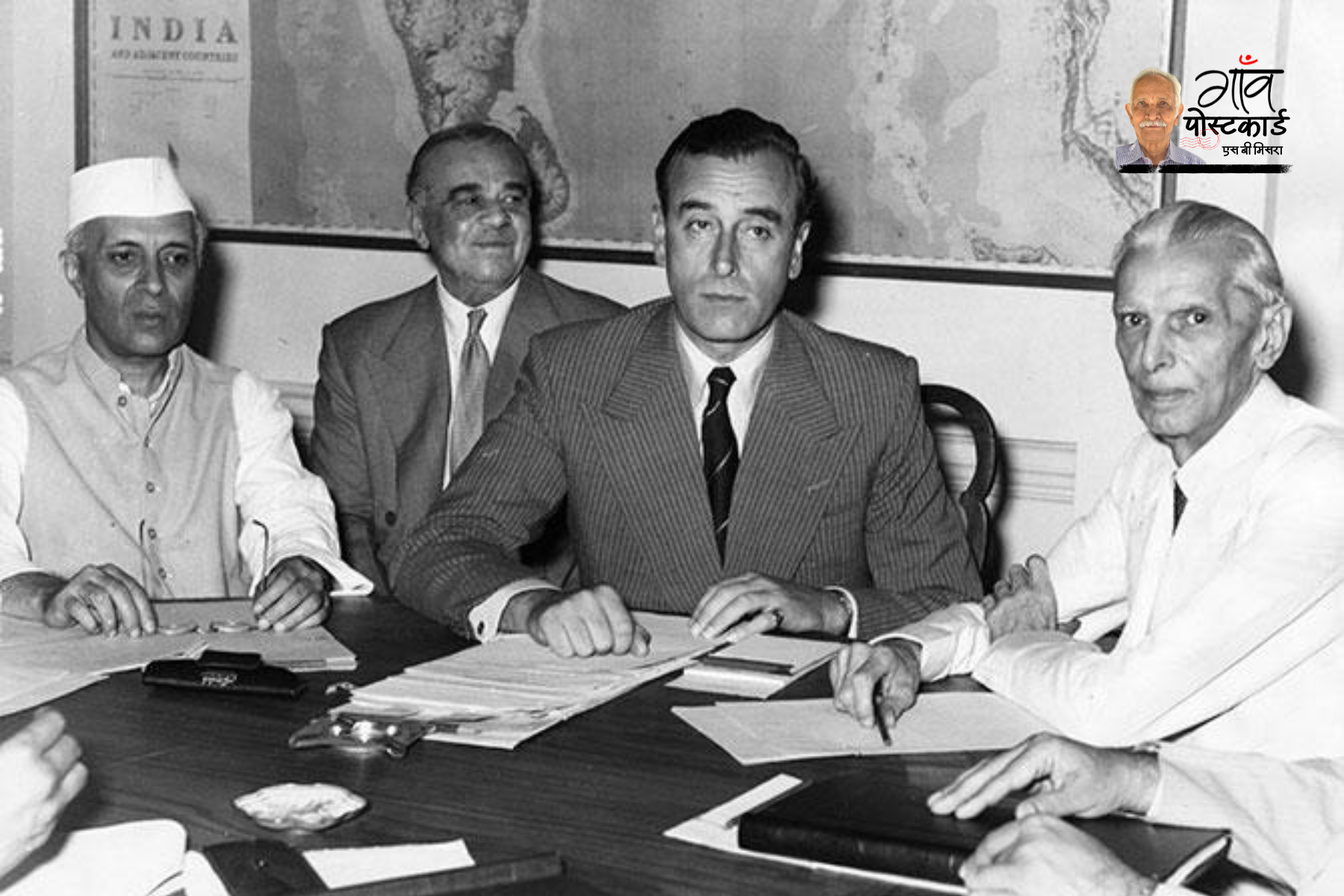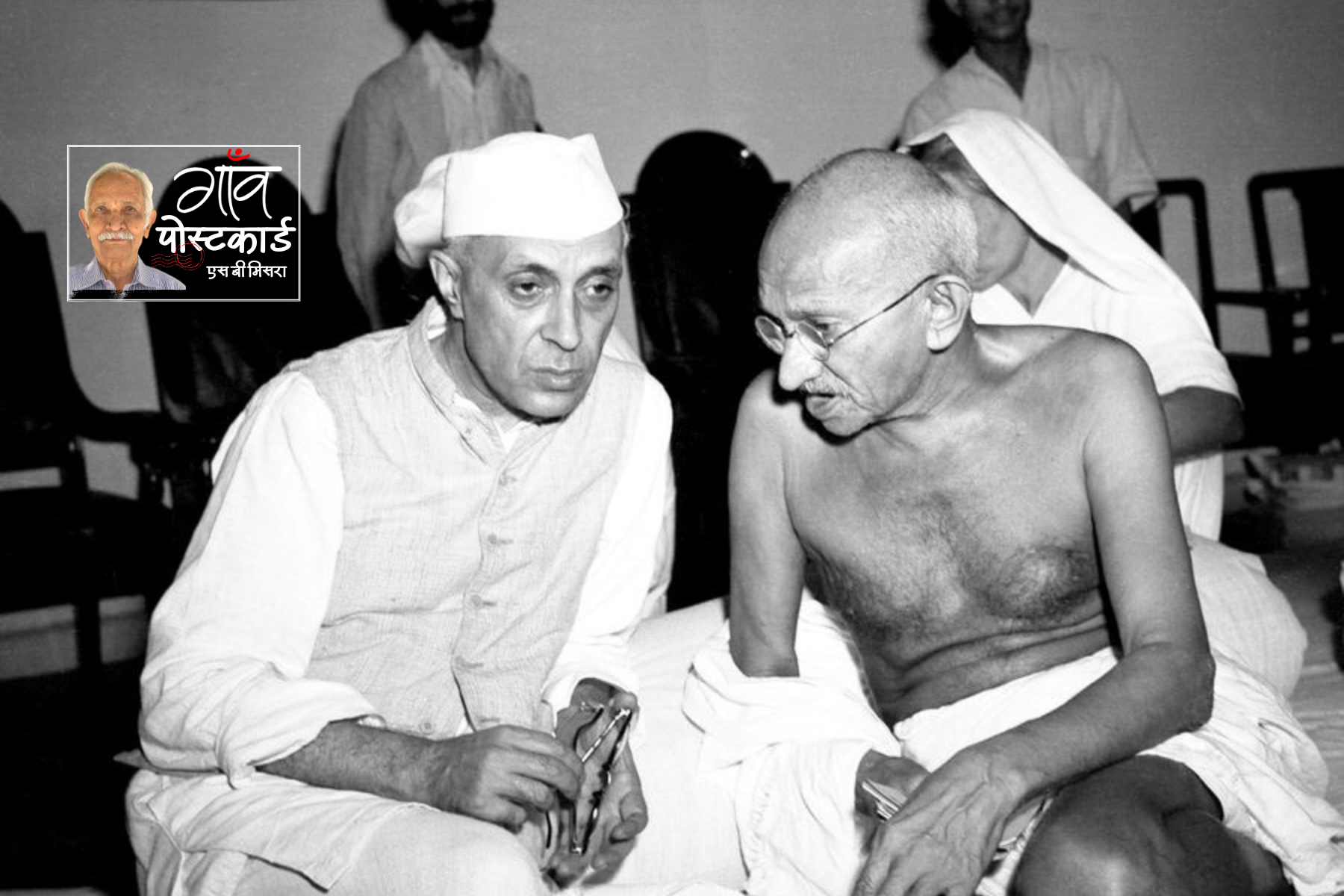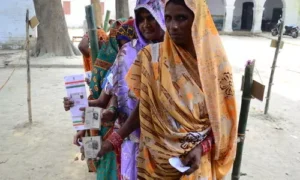Lateri (Vidisha), Madhya Pradesh
India has around 300 million forest dwellers. Thirty-year-old Chain Singh Bhil from Raipura village in Madhya Pradesh was one such forest dweller.
Last month, on August 9 night, Chain Singh Bhil, along with a group of other tribal villagers, was returning from the Lateri forest area in Vidisha district, after allegedly collecting logs of wood. The tribal men were intercepted by a patrolling party of the state forest department near Khattapura village, about eight kilometres from their village.
An altercation ensued. Patrolling team members claim the tribal villagers were smuggling wood from the forest and pelted stones at them, and in self defence the forest team had to open fire.
Chain Singh Bhil was killed on the spot whereas four other tribal residents – Sunil Bhil, Mahendra Bhil, Rodji Bhil and Bhagwan Singh – were injured and taken to the Atal Bihari Vajpayee Government Medical College, Vidisha, for treatment.
The 30-year-old Chain Singh is survived by his wife and four young children who were dependent on him for livelihood.
“My husband has been killed, nothing can bring him back. I wonder how I will look after my kids now… I just pray that my husband’s soul rests in peace. His soul will rest in peace only when he gets justice,” Munni Bai, the widow, told Gaon Connection.
For millions of tribal and forest dwelling families, conflicts around access to forest and forest resources is an everyday reality in the country.
Despite enacting The Scheduled Tribes and Other Traditional Forest Dwellers (Recognition of Forest Rights) Act, 2006 [popularly known as Forest Rights Act, or FRA], which legally recognises forest rights and occupation in forestlands with scheduled tribes and other traditional forest dwellers, hundreds of thousands tribal families across the country have still not received a formal recognition of their rights.
The FRA also empowers gram sabhas (village council) to manage and govern the forestlands, but implementation remains poor.
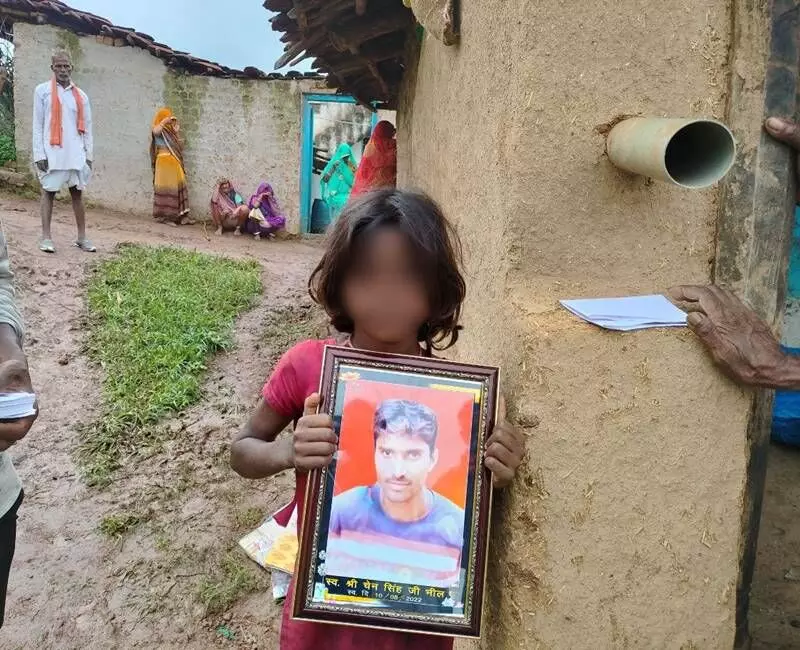
Ever since the inception of this law in 2006 to protect the rights of the forest-dwelling communities, a total of 4,429,008 claims (4,260,190 individual and 168,818 community claims) by the tribal inhabitants have been raised across the country till February 28 this year, as documented by the Union Ministry of Tribal Affairs.
Out of these, 2,234,247 claims (2,132,172 individual and 102,075 community rights) have been distributed. This means 50.44 per cent of the claims have either been rejected or are still in the process of being verified.
In Madhya Pradesh, till February 28 this year, out of the total 627,513 titles (individual, and community rights) filed by the tribal residents, 294,585 such titles have been disbursed. This means about 47 per cent of the claims are yet to be settled.
“We have to claim almost ten bighas (almost an hectare) of land from the van vibhaag (forest department). Whenever we cultivate it, forest officials term it illegal and destroy our crops. We are unable to raise claims [under FRA] as the aavedan prakriya (application process) is on hold,” Bhanwar Singh, Chain Singh Bhil’s uncle, told Gaon Connection.
On August 11, two days after the shoot-out in the Lateri forest area, Gaon Connection visited the Vidisha medical college to meet the injured. “Collecting wood from the forest is the only source of livelihood for almost every resident in the village [Raipura] which has a population of almost 500 people… The forest officials opened fire on us without any warning. We have lost a friend,” Bhagwan Singh, one of the injured villagers, told Gaon Connection.
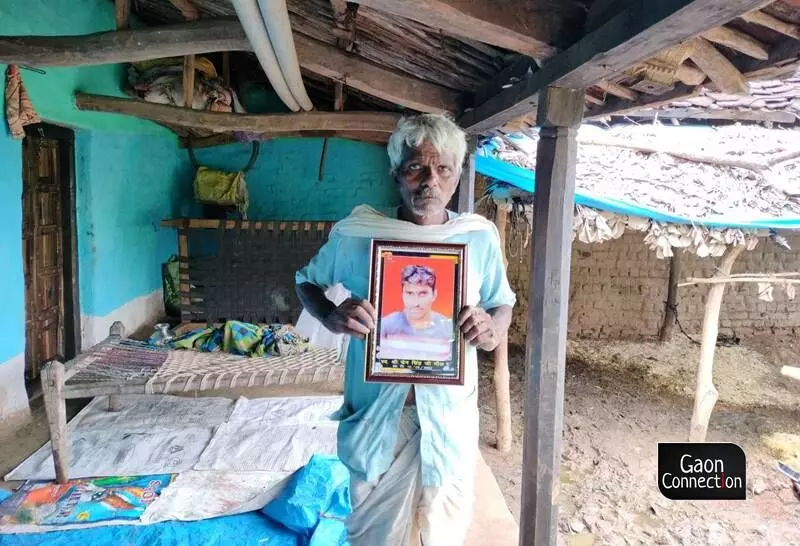
However, forest officials dismiss such allegations. A day after the shooting, the district forest officer (DFO) Rajveer Singh told reporters in a press statement that the tribal residents were trafficking wood illegally and the patrolling party resorted to firing in an act of self defence.
“Upon receiving an input about the presence of traffickers, a patrolling party rushed to the forests. The forest staff was attacked by the traffickers following which they used their weapons to defend themselves which resulted in the death of a local inhabitant and injuries to three others,” the DFO said.
Following an outburst by the tribal community in Vidisha, Narottam Mishra, the Minister of Home Affairs in the state government regretted the incident and announced compensation for the deceased and the injured on August 10.
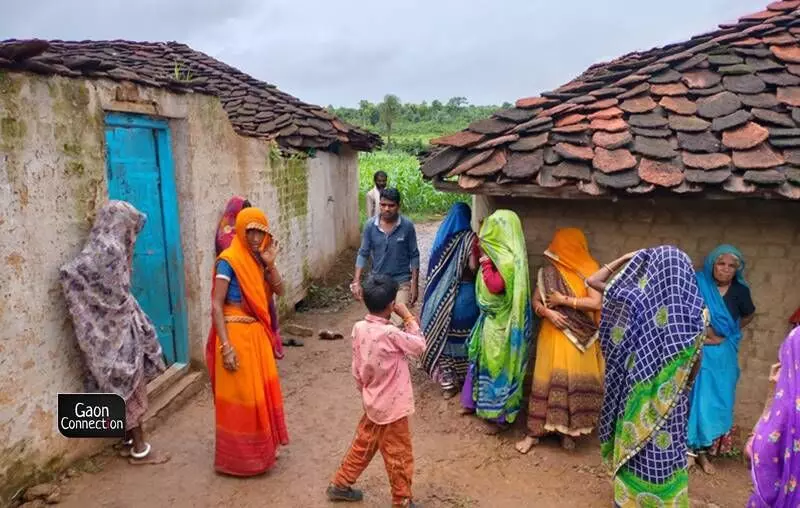
In Madhya Pradesh, till February 28 this year, out of the total 627,513 titles (individual, and community rights) filed by the tribal residents, 294,585 such titles have been disbursed.
“DFO Rajveer Singh has been transferred and all the members of the patrolling party accused of firing upon the tribal residents have been suspended. Also, a case of murder has been registered against them. The dead person’s kins are entitled to a compensation of Rs 2,500,000 while the injured will be paid Rs 500,000,” the minister told the press.
Also Read: Over 12,813 sq km forest land in India under ‘encroachment’. But, who is the ‘encroacher’?
Rising conflicts around forest resources
According to the 2011 census, the tribal population in India was 104 million, constituting 8.6 per cent of the country’s population. Tribal communities are heavily dependent on the forests for food and their livelihoods.

Madhya Pradesh contributes the highest share of tribal population amongst the Indian states — 14.70 per cent.
Apart from the tribal communities, a large number of traditional forest dwellers are dependent on the forests for their livelihoods. As per the February 2019 Report No 324 of Rajya Sabha titled ‘Status of Forest in India’, nearly 300 million tribals, other traditional forest dwellers and rural poor in the country derive their livelihoods mainly from forest resources.
A July 2015 report, ‘Potential for Recognition of Community Forest Resource Rights Under India’s Forest Rights Act’, published by a global coalition, Rights and Resources Initiative, noted that at least 400,000 sq km, or 56.5 per cent of the forests in India, are accessed and used by forest dwellers. But, their traditional rights remain unrecognised which often leads to skirmishes between tribal communities and state forest departments.
Out of the total population of Madhya Pradesh, which stands at 72,627,000, the population of tribal residents is recorded as 15,317,000, thereby occupying a share of 21.10 per cent.
Also, Madhya Pradesh contributes the highest share of tribal population amongst the Indian states — 14.70 per cent.
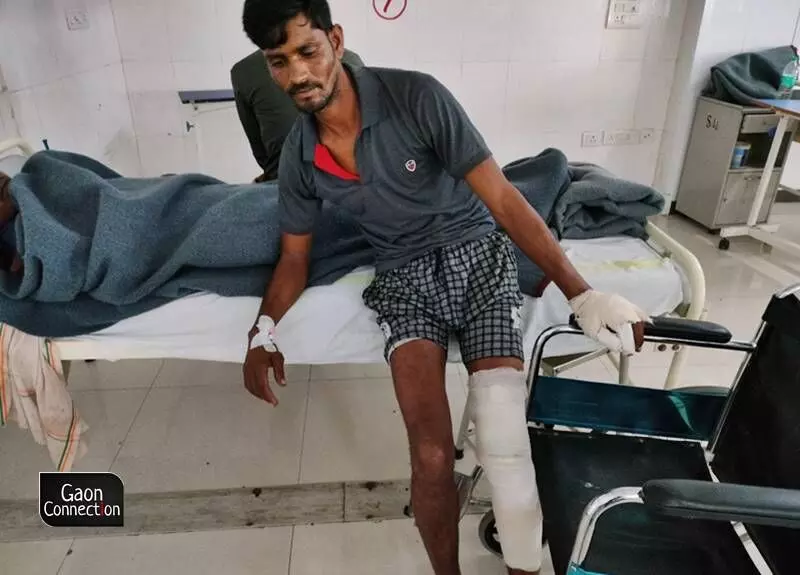
“The Madhya Pradesh government has failed in implementing the FRA [Forest Rights Act] which protects the interests of the tribal communities living within forest areas,” Rahul Srivastava, an advocate who represents tribal interests at the Jabalpur High Court, told Gaon Connection.
“These communities have been living inside the forests since time immemorial and the failure of the state in implementing these laws have left these tribal inhabitants at the mercy of poachers and traffickers who employ them to supply the forest resources illegally,” the advocate said.
“Owing to their abysmal socio-economic development, these tribal communities have no other source of income other than depending on the local forest produce. In such situations, the mafias trap them and they frequently become an easy target of the Forest Department officials leading to clashes like the one that happened on August 9,” the advocate added.
Srivastava’s remarks on the socio-economic situation of the forest dwelling communities are substantiated by the tribal ministry’s data on the percentage of tribal population living below the poverty line (BPL) in the country. According to the ministry, 55.3 per cent of the tribal population living in rural Madhya Pradesh was classified in the BPL category during 2011-12.
As per the recently published data by the National Crime Records Bureau (NCRB), in Madhya Pradesh, cases of crimes and atrocities against Scheduled Tribes have witnessed a rising trend in the last three years. In 2019, a total of 1,922 such cases were reported while the number rose to 2,401 in the following year. In 2021, a total of 2,627 such cases were recorded.

Source: Crime in India 2021, National Crime Records Bureau
Poor implementation of the FRA
Implementation of FRA remains poor in several other states too. This is reflected in the data of the tribal affairs ministry.
Ever since the enactment of the FRA in 2006, Uttarakhand has the highest percentage of claims that are yet to be settled. A total of 6,665 claims have been filed in the Himalayan state, of which only 172 have been settled. This means 97.52 per cent claims remain pending.
Karnataka is the second worst performer in settling these claims with 94.56 per cent claims still pending.
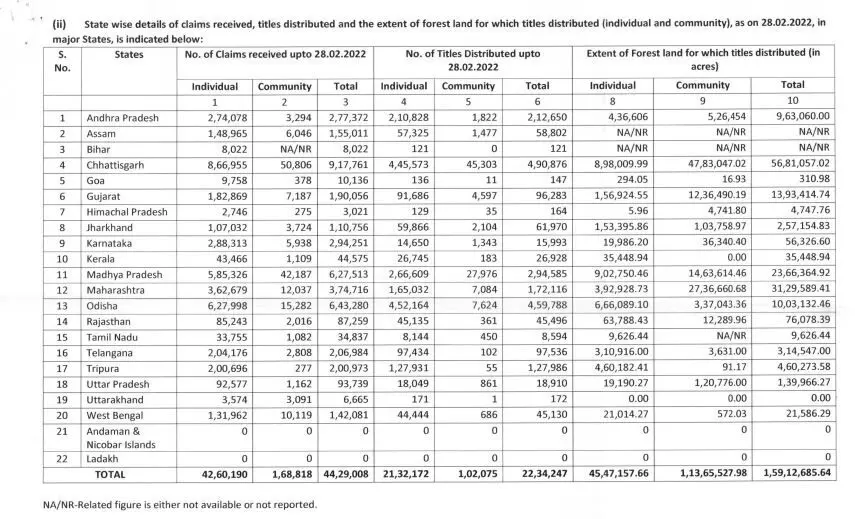
Other states where the claim settlement rates are abysmal and a large number of claims remain pending include Uttar Pradesh (79.83 per cent pending), Tamil Nadu (75.34 per cent), West Bengal (68.24 per cent), Assam (62.07 per cent), Telangana (52.97 per cent), Gujarat (49.34 per cent), Rajasthan (47.87 per cent), Madhya Pradesh (46.94 per cent), Chhattisgarh (46.52 per cent), Jharkhand (44.05 per cent), Kerala (39.59 per cent), Tripura (36.32 per cent), Odisha (28.53 per cent), and Andhra Pradesh (23.34 per cent).
Forests, a source of livelihood and survival
On August 12, when Gaon Connection reached Raipura village in Vidisha, Sardar Singh, father of the slain villager (30-year-old Chain Singh Bhil) stated that his son was killed trying to earn a living for his family.
“Collecting and selling wood is the only source of livelihood for us. My son didn’t commit any crime. He was killed for no fault,” the father said.
Meanwhile, Sunil Bhil, who was injured on the night of August 9, stated that he wasn’t involved in collecting wood but was searching for his lost buffalo in the forests. “I wasn’t even collecting wood, I was searching for my buffalo. But nobody has ever stopped the villagers from collecting wood here,” he said.
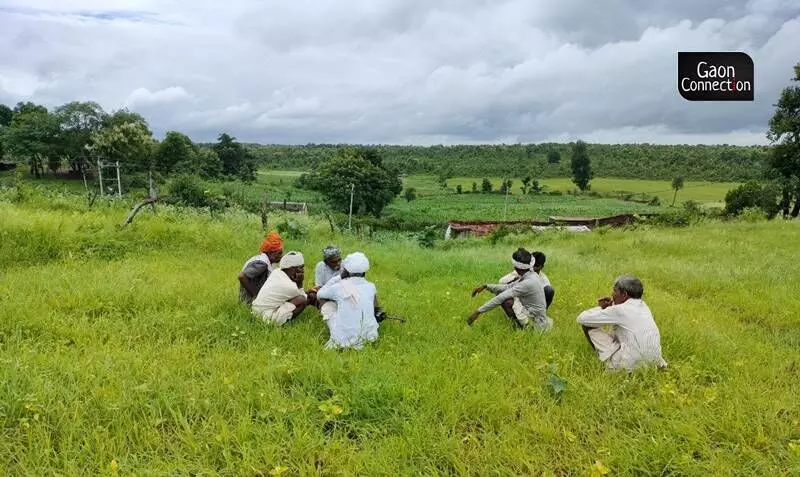
According to the tribal affairs ministry, 55.3 per cent of the tribal population living in rural Madhya Pradesh was classified in the BPL category during 2011-12
Madhuri Krishna, a Bhopal-based tribal activist, stated that the tribal natives were being dispossessed from their lands in Madhya Pradesh. “There are hardly any employment opportunities available to them and if selling wood is to be considered a grave crime then the forest officials themselves will find it very difficult to escape punitive action because they also indulge in the illegal sale of forest produce,” the tribal activist alleged.
The absence of legal titles over their lands amounts to these tribal residents being considered as encroachers, leaving them at the mercy of the state authorities which often results in violent clashes and protests, point out tribal activists.
Hiralal Alawa, member of legislative assembly (MLA), representing Manawar constituency in the state legislature and the founder of Jai Adivasi Yuva Shakti party, told Gaon Connection that the incidents of attacks of forest inhabitants were on the rise.
“Sometimes they are attacked for defending their lands, sometimes it is the forest officials who shoot them and sometimes they are lynched by mobs. The state government is not able to provide security to the tribal inhabitants in the state,” Alawa said.
Forest officials informed Gaon Connection on the condition of anonymity that in south Lateri forest range where the 30-year-old tribal resident was shot dead on August 9, a total of 159 cases have been registered against ‘illegal traffickers’ in between 2017-2022. Also, 1,522 incidents of deforestation have been registered in the same time period and 250 motorcycles and more than a dozen of heavy vehicles have been seized.



